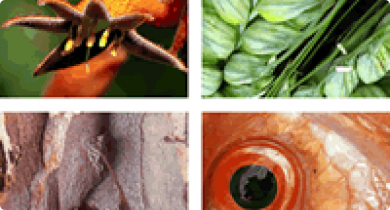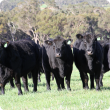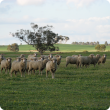Biosecurity
Biosecurity is fundamental for safeguarding our valuable agricultural resources against the threat and impacts of pests, weeds and diseases (pests).
Biosecurity is the management of the risk of animal and plant pests and diseases entering, emerging, establishing or spreading in Western Australia, to protect our economy, environment and the community.
To protect Western Australian agricultural industries from pests the Department of Agriculture and Food, Western Australia:
- Works with stakeholders to identify and manage biosecurity risks.
- Develops legislation.
- Establishes import controls.
- Conducts inspections.
- Provides quarantine services as required.
To find out more about what we do to protect agricultural production and export opportunities within the State please search our website.
Filter by search
Filter by topic
- Pests, weeds & diseases (109) Apply Pests, weeds & diseases filter
- Diseases (109) Apply Diseases filter
- (-) Remove Livestock biosecurity filter Livestock biosecurity
- (-) Remove Livestock health & diseases filter Livestock health & diseases
- Livestock disease surveillance (101) Apply Livestock disease surveillance filter
- Livestock & animals (89) Apply Livestock & animals filter
- Livestock species (72) Apply Livestock species filter
- Livestock management (33) Apply Livestock management filter
- Sheep (31) Apply Sheep filter
- Emergency animal disease preparedness (31) Apply Emergency animal disease preparedness filter
- Beef cattle (23) Apply Beef cattle filter
- Dairy cattle (19) Apply Dairy cattle filter
- Management & reproduction (13) Apply Management & reproduction filter
- Poultry & birds (12) Apply Poultry & birds filter
- Pigs (11) Apply Pigs filter
- Goats (9) Apply Goats filter
- Horses (7) Apply Horses filter
- Feeding & nutrition (7) Apply Feeding & nutrition filter
- Livestock movement & identification (7) Apply Livestock movement & identification filter
- Control methods (7) Apply Control methods filter
- Chemicals (7) Apply Chemicals filter
- Wildlife biosecurity (5) Apply Wildlife biosecurity filter
- Veterinary chemicals (5) Apply Veterinary chemicals filter
- Emergency response (5) Apply Emergency response filter
- Quarantine (3) Apply Quarantine filter
- Residues in livestock (3) Apply Residues in livestock filter
- Preventing residues (3) Apply Preventing residues filter
- Stockfeed (3) Apply Stockfeed filter
- Importing to Western Australia (3) Apply Importing to Western Australia filter
- Food, export & investment (3) Apply Food, export & investment filter
- Importing animals (3) Apply Importing animals filter
- Pests (1) Apply Pests filter
- Plant biosecurity (1) Apply Plant biosecurity filter
- Water management (1) Apply Water management filter
- Pest animals (1) Apply Pest animals filter
- Water (1) Apply Water filter
- Export services (1) Apply Export services filter
- Biosecurity and Agriculture Management Act (1) Apply Biosecurity and Agriculture Management Act filter
- Biosecurity governance (1) Apply Biosecurity governance filter
- Climate, land & water (1) Apply Climate, land & water filter
- Livestock research & development (1) Apply Livestock research & development filter
- Mechanical, physical and cultural (1) Apply Mechanical, physical and cultural filter







